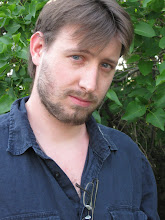In a posthumously republished article at FIRST THINGS, the late Father Richard John Neuhaus laments the spiritual bankruptcy of academic Religious Studies. He should. But he should also have taken a look at his own legacy. Here are my remarks:
This article by Father Neuhaus is perfectly accurate. The only problem is that he himself exemplified the very faults he is decrying, as do most of the regular contributors and editorial staff here at FIRST THINGS. They are intellectuals all; masters of sophisticated gibberish, of dialectic, of the over-indulged adversary and of the never-quite-reached conclusion. Father Neuhaus, as we all know per his own self-depictions, was basically a “good liberal,” a man of the sort who thinks that the Social Revolution was not wrong, but that it didn’t go far enough. How telling is that famous picture of him standing next to Martin Luther King Jr., jaw set and eyes fixed, no doubt feeling himself very much in the right, having the good conscience at his back, ready to strike a blow for social justice, doing “the Lord’s work.” Did he know at the time that he was helping to set the standard by which all future liberalism in this country would operate, and that the standard would be one of social agitation, manufactured victimization and enforced pathology, all of it wrapped up and peddled to the lumpen-laity with pseudo-religious platitudes about “helping the poor” and “loving thy neighbor?” If not, then he certainly had ample time consider the aftermath, and it may be that he recognized the truth in the end. One of his last appearances on EWTN was for the purpose providing commentary for the papal mass in New York, which (if memory serves me right) he ridiculed as a “preening and overweening multicultural mishmash.”
Well said. Nevertheless, his approach to confronting unpleasant cultural tendencies was marked by both extreme intellectualization and a spirit of sympathy bordering on conciliation, as is that of the magazine he founded. These methods are ineffective. The ostensible purpose of FIRST THINGS is to “advance a religiously informed public philosophy for the ordering of society.” A quick glance around the society so ordered by Neuhaus & Co. shows exactly how successful that venture has been. Irony of ironies, Neuhaus was planting the seed for that mishmash mass when he decided to agitate alongside Dr. King. The rest is history.
It is the eternal fate of intellectuals to be ever standing on the wrong side of life, doing the devil’s work with the noblest intentions. This is because the intellect is capable only of criticism, never of construction. It apprehends and judges only what is unequal; it revels in the discovery of abnormality. Not that the intellect, by its own operations, can ever normalize the defects it discovers; it can only complain, and that complaint is always in the service of power. Subtly and inexorably it strengthens the ego, birthing that adamantine chip on the shoulder which is the hallmark of all revolutionaries, drawing the sympathies of those similarly afflicted, until at last the man is ready to rob an murder in the name of a social ideal which at its bottom can be shown to be nothing but a globalized personal gripe. Short of an actual revolution, there are always the perquisites of academic tenure to consider; the thrills of being a subversive, of tapping into the raw energies behind the misgivings of youth, of becoming “hip” and aloof, living life with a permanent sneer of mockery emblazoned across one’s face. Finally, for those without the skills to hack it in academia, there is the bliss of never-ending childhood that forms the secret pleasure of all victim-complexes; the pleasure of fisted-glove piracy which the victims affect by their ever-present threat of agitation; a life without real demands upon the faculties, without anxiety, without out accomplishment; a life lived in the consoling embrace of darkness.
We need look no further to understand why academic Religious Studies is a spiritually stunted project. That is its whole purpose. That’s what it is; that’s what it does. It was not the result of a mistake, but belongs essentially to what intellectualization is all about. What Father Neuhaus & Co. fail to realize is that the unilluminated intellect can never serve as a reliable ally in the quest for spiritual depth, and that therefore their own efforts are often similarly benighted. The intellect plays but a small and not very important part in the affairs of men. The true transformation of society will require the strength of the blood. It is imperative that the Church begin to function once again as a political organism, eschewing not the methods and tactics of temporal power. The alternative will be the complete dissolution of Christianity into a generalized system of social ethics. There are even powerful forces within the Church who desire this very end. The Great Laicization Project, marked by strong appeals to the freedom of conscience and by the ostensible-but-misguided desire to keep the purity of the Church free from state interference (its chief architect at present is George Weigel), must fail if Christianity is to succeed. In its place must needs be an aristocratic Church that can lead society in the right direction by example and command; a Church that cuts the Gordian knot of over-tense argumentation and entrenched political convenience. The current crop of intellectuals is ill-fitted to affect this transformation. They think, therefore they are not.
Saturday, September 5, 2009
They think, therefore they are not
Labels:
First Things Comments,
Roman Catholicism,
Theology
Subscribe to:
Comments (Atom)
